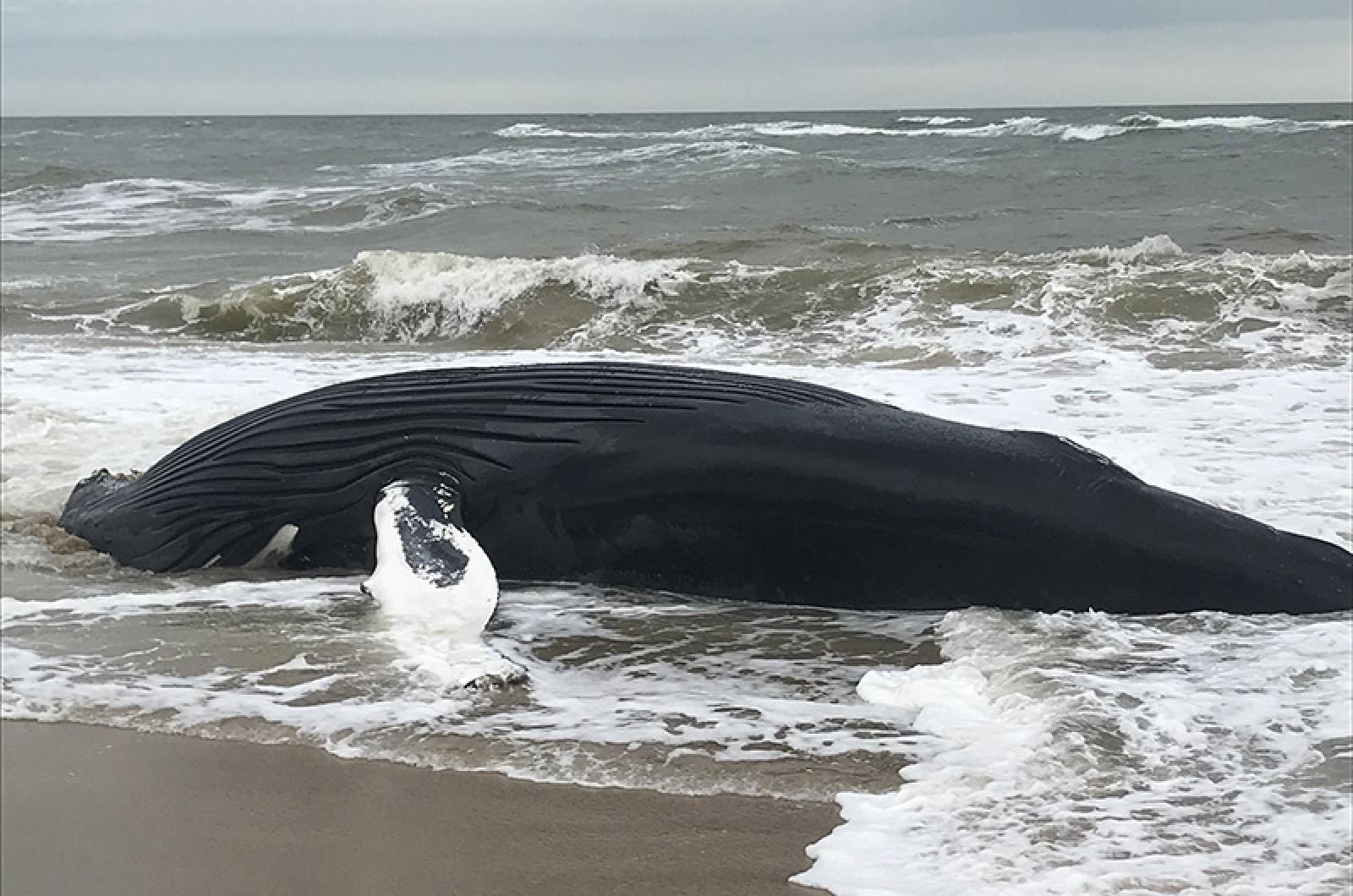A humpback whale that washed up at Norton Point beach 10 days ago likely died from gear entanglement, a preliminary examination has determined.
“We collected skin samples, blubber thickness and some histology samples from abrasions on the mammal that looked like potential entanglement through the mouth,” said Sam Hart, Islands director for the Trustees of Reservations, speaking to the Gazette by phone last week.
Ordinarily in the event of a stranded whale, scientists from NOAA would travel to the Island to do a necropsy but were unable to do so due to weather conditions and Covid restrictions. Mr. Hart said he was instructed through the process via video call by a scientist from the IFAW Marine Mammal Rescue & Research Center in Yarmouth. The humpback, now known to be a small male, 28 feet in length, was found washed up at Norton Point by a passerby on Friday, Dec. 4. The next day a strong northeast storm struck the Vineyard, and the carcass was pushed eastward along the Atlantic-facing barrier beach.
A formal inquiry into the whale’s cause of death began last week, with a series of samples collected by Mr. Hart and his team of Trustees rangers, aided by scientists on the video call.
Based on the preliminary investigation, Mr. Hart said it appeared that entanglement in fishing gear was the cause of death. Samples collected from the whale were due to be sent to NOAA and IFAW. Data collected regarding the whale’s DNA will also be added to their records, Mr. Hart said.
North Atlantic humpbacks, though not endangered, are currently on the protected species list, with the humpback population in decline for the past half-century.
In 2016, NOAA declared an unusual mortality event for humpback whales after elevated mortalities began to occur along the Atlantic coast, from Maine to Florida. Massachusetts has seen 26 strandings — including three on the Vineyard — since 2016, the second most of any state, behind New York.
The whale has remained stationary on the beach since the storm, Mr. Hart said, and has begun to decompose.
“I think it’s definitely decomposing. You can see some bones sticking up through it and the birds are starting to work on it,” he said.
Following winter protocol for strandings, Mr. Hart said the Trustees have no plan to remove the whale from the beach or return it to the water. The whale will decompose naturally in the coming weeks and months, he said.






Comments (2)
Comments
Comment policy »